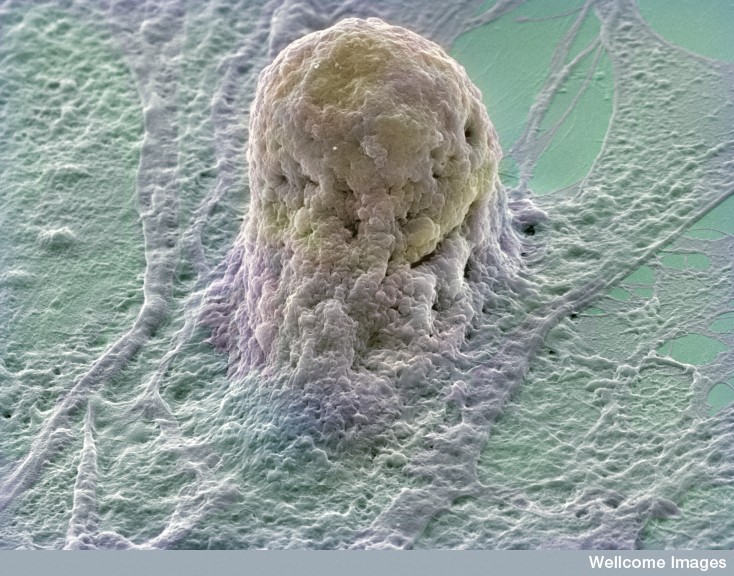
In a paper co-authored by McGill’s Guillaume Bourque that was published online March 30 in Nature Structural & Molecular Biology, researchers have discovered how an ancient virus that invaded the human genome millions of years ago now plays a key role in the development of embryonic stem cells.
Of particular interest, scientists have found that the HERV-H retrovirus plays an important role in keeping embryonic stem cells pluripotent. A better understanding of how HERV-H works might help researchers chemically reprogram ordinary cells into becoming pluripotent stem cells, which “could help lead to regenerative medicine therapies,” Bourque said. Those therapies could treat conditions such as diabetes, stroke, multiple sclerosis, Parkinson’s disease, and brain and spinal cord injury.
April 2, 2014
